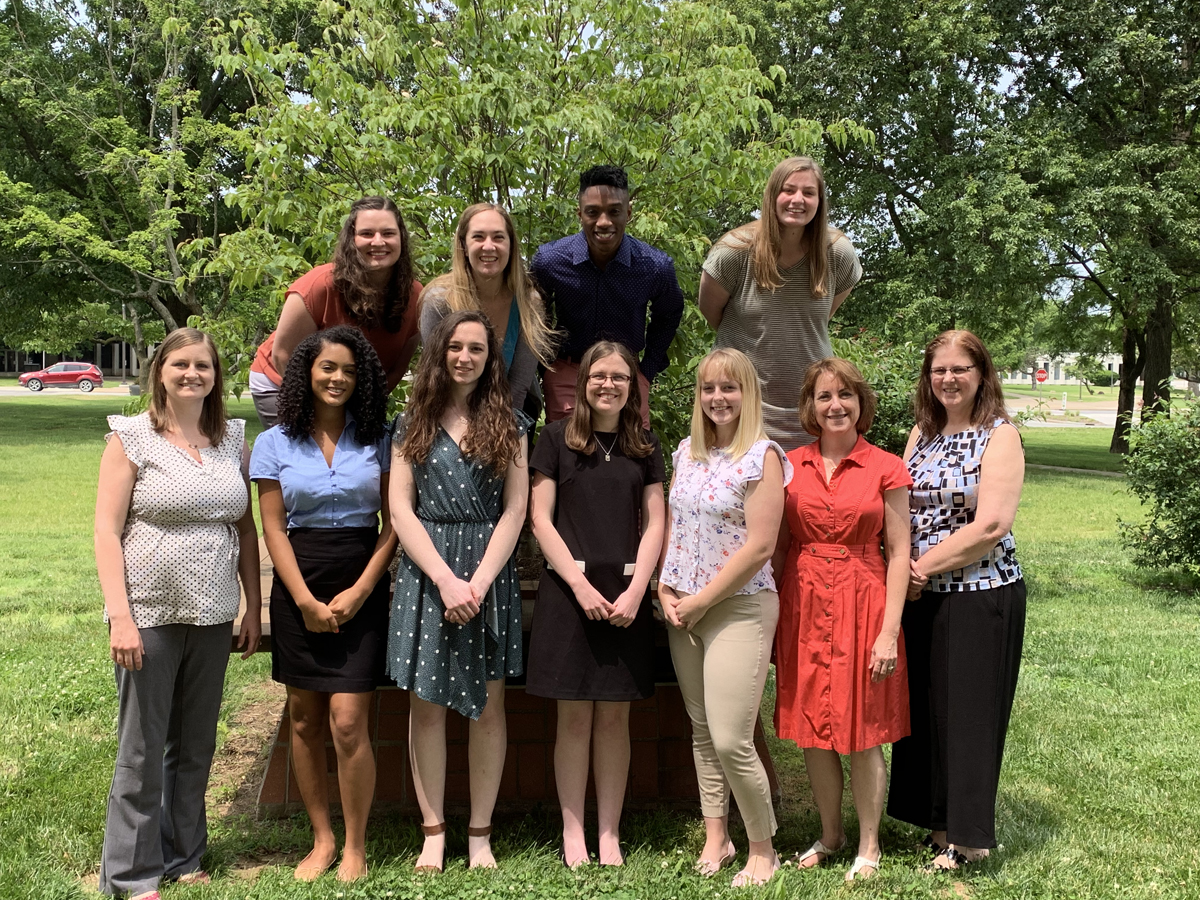
June 21, 2019
Grant from the American Psychological Association prompts a summer research program for undergrads
CARBONDALE, Ill. — Five psychology students from across the nation are jumping into hands-on research this summer in a new program at Southern Illinois University Carbondale.
The eight-week program provides valuable research experience to undergraduate students, with each participant completing and presenting their own research at the upcoming SIU Summer Research Symposium.
Funded by the American Psychological Association
Thanks to a grant from the American Psychological Association (APA), faculty from SIU’s psychology department, including Karla Fehr, Lisabeth DiLalla, and Michelle Kibby, are guiding, advising and assisting students in the unique Summer Undergraduate Psychology Research Experience.
The grant from the APA focuses on giving students with little to no previous research experience the opportunity to gain hands-on research experience in psychology. Of the five students enrolled in the program, two are from SIU and three are from other universities across the nation.
Working full-time as research assistants, students receive funding during the eight-week program, along with laboratory experience. The grant also covers some administration and research supplies expenses.
Providing experience and exposure to undergraduate researchers
Now in the third week of the program, the students work under the guidance of three clinical and developmental psychology faculty members at SIU, along with learning from several graduate level students in the field. Each participant will also complete an individual research project of their choice, which they will present at SIU and other regional and national conferences.
As key organizer for the program, Karla Fehr, assistant professor of clinical psychology, hopes the summer proves beneficial to the students in both their academic and professional careers.
“Our program is specific towards child clinical and pediatric psychology,” Fehr said. “So the students will gain in-depth experience in those areas.”
As an eight-week program over the summer months, the students work full time in the labs and on their own research. Split between seminars and trainings, working with faculty research and conducting their own projects, the goal is for the students to leave with hands-on experience and knowledge in the field.
“Our main goal is to get more research experience to undergraduates and help them develop the skills they might need to be successful in their futures,” Fehr said. “We also want them to get more exposure to the research currently being done in child clinical and pediatric psychology.”
Working on a variety of projects
While working under the expertise of the leading faculty members, each student chooses their own unique research focus. Maggie Schlotter, a junior from Collinsville, Illinois, is working on an analysis to understand temperament in relation to empathy in children.
“Temperament is basically the personality form of infants,” Schlotter said. “Biologically, babies are born with certain traits. Some will cry a lot and be fussy, while others are really chill and easy going.”
Using a longitudinal study collected by Lisabeth DiLalla, professor of clinical psychology, Schlotter compares the personality of the infant against their level of empathy as a young child.
“When the children are 6-10 years old, they get called to do a follow-up where we get parent-rated empathy for the child,” Schlotter said. “So I am looking to see if there is a relationship between temperament when they are younger and empathy as they grow older.”
The project fits perfectly with Schlotter’s future goals as a researcher, as it sets her up with experience while she is looking at doctoral programs for social personality psychology.
Preparing the students for their futures
The program is important because it gives the students a strong foundation for their future, Fehr explained. Some of the students hope to go into academia, while others plan to focus on clinical work. Regardless, this program gives them the training and preparation they will need in the future.
“This is a pretty unique program,” Fehr said. “It’s unique for the undergraduate level students to get so immersed in the research process. Usually when students do have research work, they also have to focus on other classes and keeping up with course work. This summer program allows them to immerse themselves at a deeper level than they otherwise would have been able to do.”
For Audrey Ambrosio, junior from Moline, Illinois, the program offers more than just something to add to a resume; it provides valuable training as she moves toward her thesis project and further research plans.
“This really helps me learn how to research and it gives me more experience in the field,” Ambrosio said. “It’s also giving me more resources and connections. Overall, learning how to collect data and run data is a lot easier in a research setting rather than a classroom setting.”
For more information about the summer program or current research topics, contact Karla Fehr, assistant professor of clinical psychology, at 618/453-3554.
